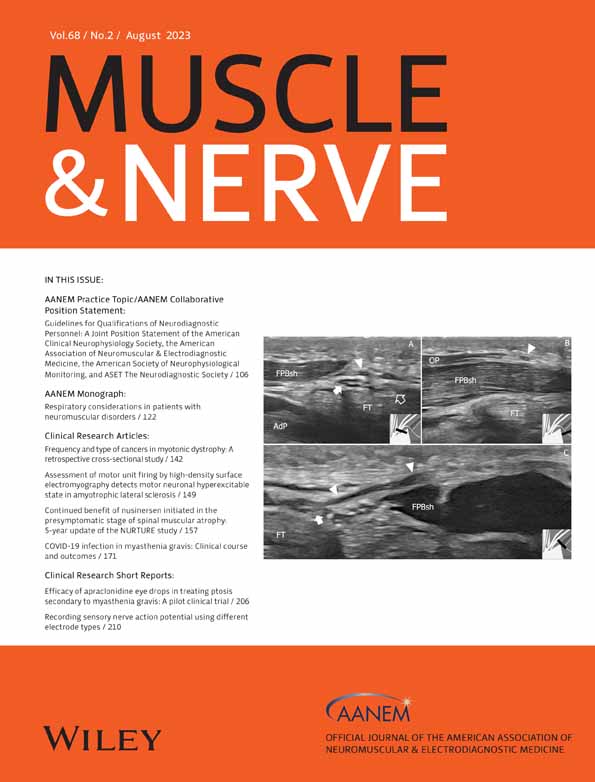COVID-19 infection in myasthenia gravis: Clinical course and outcomes
Abstract
Introduction/Aims
Myasthenia gravis (MG) patients have been predicted to have high rates of coronavirus disease-2019 (COVID-19) complications due to frequent involvement of respiratory muscles in MG and frequent use of immunosuppressive therapies. We investigated outcomes of MG patients infected with SARS-CoV-2 to identify risk factors for exacerbation and severe disease.
Methods
This was a retrospective analysis of 39 MG patients with SARS-CoV-2 infection from January March 1, 2020 to October 25, 2021 at Emory University. Patients’ records were queried for demographic data, MG history, and COVID-19 treatments and hospitalizations.
Results
At the time of infection, 8 of 39 were vaccinated, 30 of 39 unvaccinated, and 1 unknown. Average age was 52.6 years. Twenty-seven patients were receiving immunomodulatory treatments at the time of infection. Thirty-five of 39 were symptomatic, 21 were hospitalized, and 7 required ventilations. MG exacerbations occurred in 5 and were treated with therapeutic plasma exchange (n = 1), intravenous immunoglobulin (IVIg) (n = 1), and prednisone taper (n = 5). Four hospitalized patients died from COVID-related lung injuries. No deaths were attributed to MG exacerbation; however, one patient receiving IVIg for MG exacerbation had a pulmonary embolism. There were no deaths in fully vaccinated patients, and only one vaccinated patient was admitted to the intensive care unit.
Discussion
High rates of COVID-19 complications and death were observed in this cohort of MG patients. Some patients with MG and COVID-19 also had an exacerbation during infection. Further studies are needed to determine whether MG patients are at higher risk for complications than the rest of the population.
CONFLICT OF INTEREST STATEMENT
The authors have no conflicts of interest to disclose.
Open Research
DATA AVAILABILITY STATEMENT
The data that support the findings of this study are available on request from the corresponding author. The data are not publicly available due to privacy or ethical restrictions.




